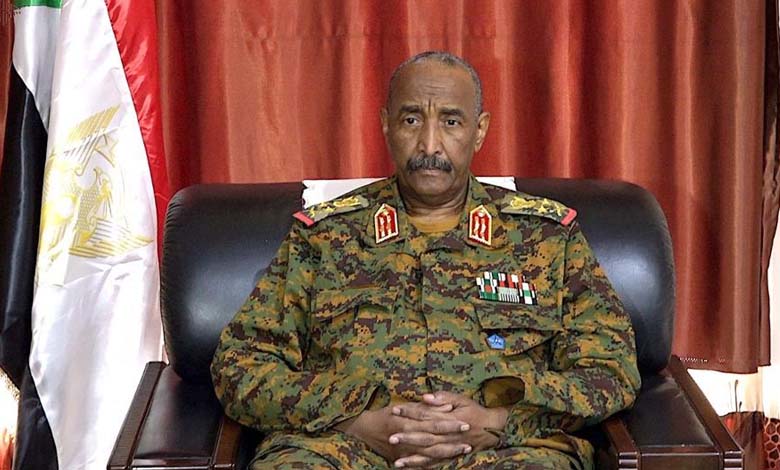Al-Burhan Rejects All Mediation Efforts to Resolve Sudan Crisis for Personal Gains

Sources have revealed the motives behind the allies of Sudanese army chief General Abdel Fattah al-Burhan refusing to sign the final statement of the Cairo conference, which gathered Sudanese forces.
Leaders of the Sudan Liberation Movement, Minni Arko Minnawi, the Justice and Equality Movement, Jibril Ibrahim, and the Popular Movement, Malik Agar, al-Burhan’s allies, announced their rejection of the final statement of the Sudanese forces conference in Cairo held on Saturday, claiming it did not represent them as it did not condemn the Rapid Support Forces.
Personal Gains
A well-informed source who participated in the conference said, “The final statement included condemnation of the violations of both warring parties, while al-Burhan‘s allies wanted to absolve the army of violations in an attempt to show loyalty to their allied leader, linking their fate to his.” The source added, “al-Burhan‘s allies also want to pressure mediators to gain personal benefits by securing a seat in upcoming negotiations, making them trilateral instead of bilateral between the army and the Rapid Support Forces, especially as the Juba Agreement that brought them to power is now in jeopardy after the outbreak of the war.”
He indicated that “the parties of the Juba Agreement who sided with the Sudanese army have become part of it and cannot sit as a third party in the negotiations.”
The source spoke about the behind-the-scenes of the Cairo conference, saying, “The coordinating group ‘Taqaddum’ met hours before the start of the conference to know the agenda and proposed vision, finding three speeches in favor of the army’s allies Agar, Minnawi, and Jaafar al-Mirghani, versus one for Abdallah Hamdok; this led to their protest, demanding equality in the number of speakers, or for neither side to be allowed to speak.”
He added, “The mediators intervened and proposed that Sudanese politician Shafi Khidr deliver one speech on behalf of all participants, which ‘Taqaddum’ agreed to, but this disrupted al-Burhan‘s allies.”
The source indicated, “al-Burhan’s allies had prepared their rooms to broadcast their speeches criticizing the Rapid Support Forces and ‘Taqaddum’ coordination, but after their exclusion, they became disturbed and confused, refusing to sit with the ‘Taqaddum’ representatives after dividing the participants into three working groups: cessation of war, humanitarian work, and political process.”
He added, “The mediators then proposed that each group submit its recommendations separately to a joint drafting committee composed of 10 people to write the final statement from the overall recommendations, revealing that al-Burhan’s allies had no ready and written vision on the three points.”
Maneuver
Regarding what al-Burhan‘s allies raised in Cairo, Arwa al-Sadiq, leader of the National Umma Party, said, “What happened is a form of maneuver for various reasons, none of which are what Minnawi and Jibril claimed in their statements on social media.”
Arwa added, “Unfortunately, al-Burhan’s allies had signed a draft a few days earlier that did not differ much from what was signed on Saturday in Cairo.”
He explained that the reason is “personal and selfish motives, not based on objective contexts. By refusing, they attempt to extract additional concessions and maintain personal benefits in power and wealth, unrelated to humanitarian, relief concerns, or the search for justice or protection of citizens and their properties.”
He added, “No one seeking peace would refuse to sign a document calling for the cessation of war.”
Arwa expected, “to reassure al-Burhan‘s allies about the benefits they will receive from this agreement and subsequent agreements, convincing them of the importance of signing the agreements earlier.”
Loyalty to al-Burhan
Political analyst Shawqi Abdelazim said that “Al-Burhan‘s allies showed signs of confusion from the moment they arrived in Cairo,” pointing out that they want to show their loyalty to the leader of the Sudanese army with whom they are fighting, as an alliance with the army comes with its commitments and burdens, according to him.
-
Messages from al-Burhan’s meeting with Zelensky… Ready to meet Hemeti and support a peaceful solution
-
Hemeti responds to al-Burhan’s propaganda at the United Nations
Abdelazim confirmed that the disagreement was not about the conference’s outcomes as Al-Burhan‘s allies claimed.
He considered their refusal to sit with representatives of the “Taqaddum” Coordination after accusing it of siding with the Rapid Support Forces as “an attempt to justify their participation in the war alongside the army.”
He added that “the uproar they caused reflects the extent of their confusion, especially since they did not have a clear position as their representatives participated in drafting the final statement and agreed to it before going back and refusing to sign it.”












